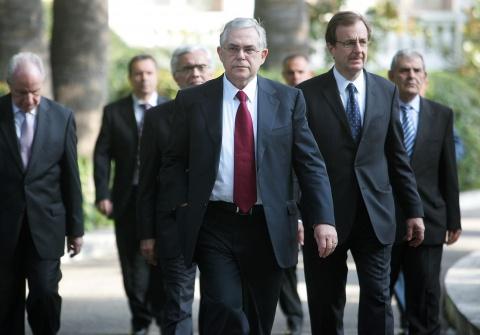Greece has undergone extreme economic and political turmoil ever since this past May. With a complete economic meltdown on the horizon, Greece has taken dramatic steps to prevent their closely looming bankruptcy.
On Nov. 11, Greece’s Prime Minister George Papandreou agreed to resign halfway through his four-year term. After pushing for a referendum on the bailout agreement, fellow politicians and party opposition called for Papandreou’s resignation. An interim coalition government was assembled, which will function until public elections are held on Feb. 19.
“I would like to wish every success to the new prime minister, and of course the new government,” said Papandreou in his farewell address. “I will stand by them and I will support them with all my strength.”
After several days of negotiation, former Vice President of the European Central Bank Lucas Papademos was declared Greece’s new Prime Minister. He was officially sworn in on Nov. 11.
Papademos has had no time to become accustomed to his new position as prime minister, but nonetheless he must immediately start working to find the solution to Greece’s massive economic problems.
A bailout agreement was already approved last month by the European Union for $178 billion with a return rate of 50 cents for each borrowed euro, according to the BBC.
This hefty bailout could be Greece’s salvation, but it comes with a steep cost. The government has come up with a five-year plan that would implement austerity measures to reduce Greece’s public spending while simultaneously increasing taxes.
These planned austerity measures contain a multitude of policies including everything from implementing new luxury taxes on pools to raising the retirement age from 55 to 65, reported the BBC.
Although the measures may be the only thing that will save the economy from complete crisis, the Greek population is not in favor of these measures, and thousands have shown their dissent in nationwide protests. Even though these measures are severe and unpopular, something has to be done before the Greek economy collapses into bankruptcy.
“Greece is at a juncture; both Papandreou and Papademos have seen the economic turmoil wrought by bank failures within Argentina as result of their unwillingness to pay back debt borrowed from abroad,” said political science major Brian Jones, senior. “Neither of them wishes to see this happen in Greece, which is why the austerity measures that they are trying to pass are so devastating and encompassing. What they are trying to show their people is that they are working night and day to ensure political and economic stability within Greece.”
The new coalition government is doing everything it can to ensure that Greece’s economy does not completely pass the breaking point.
“Greece is at a crucial crossroads,” said Papademos to the Guardian. “The choices that are made and the policies that are enforced will have a decisive impact on the wellbeing of Greeks. The way forward will not be easy but the problems can be solved, and will be solved, if there is unity, co-operation and consensus.”

